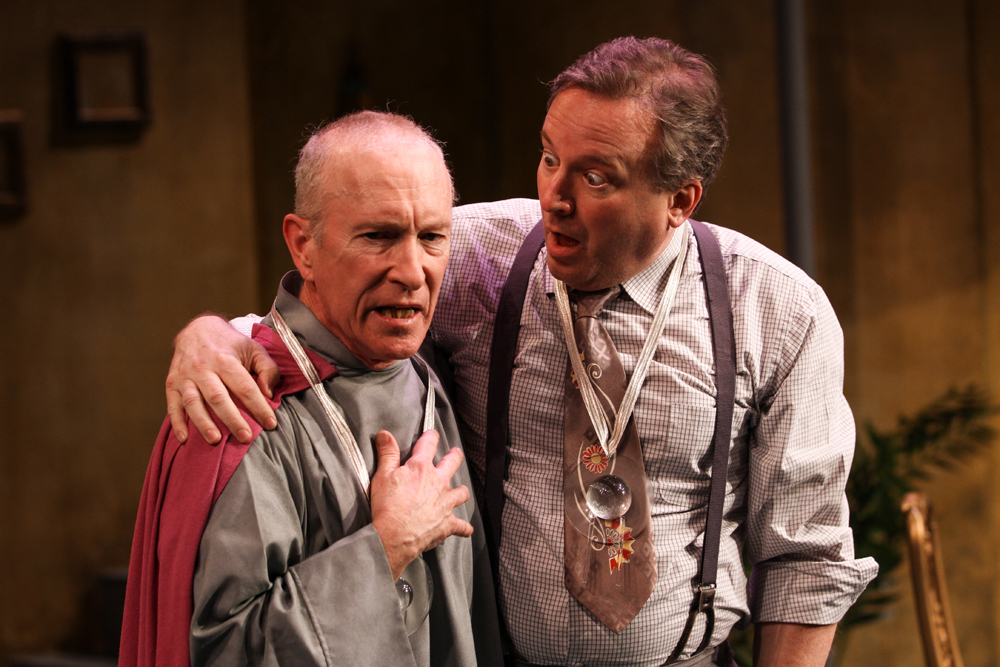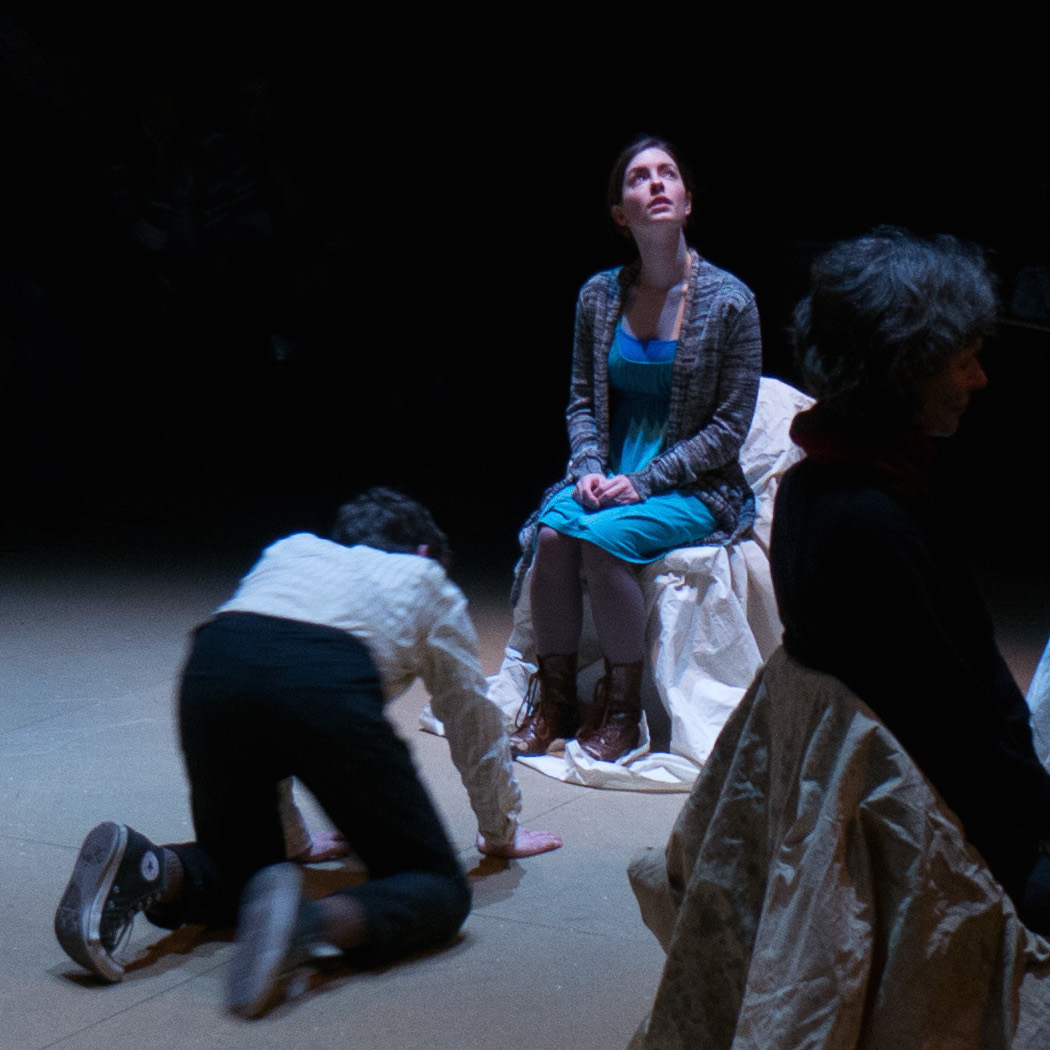The word “tartuffe” has come into the English language to represent an overly zealous hypocrite or impostor. You can still see these charlatans today. They can be false swamis, ministers, or cult leaders; and they make heavenly promises while collecting earthly gains. The term is inextricably linked to Moliere’s 17th-century comedy, in which a mendicant holy man entraps a wealthy man and his family. Seattle Shakespeare Company has transported this classic to post-World War II America, a time when the world was rebuilding and searching for new guidance. (Any period resemblance to Scientology and The Master is entirely intended, says director Makaela Pollock.)
Rich, gullible Orgon (Peter Lohnes) is mesmerized by Tartuffe (R. Hamilton Wright), who preaches a type of religion that involves wearing capes and pendants. Despite every warning about the greedy, hyporcritical interloper, Orgon disinherits his son, breaks off his daughter’s previous engagement, and makes Tartuffe his sole heir. Comeuppance, we know, will follow.
Moliere’s neat comedic structure reflects the growing certainties of the Age of Enlightenment: A deviant tries to upset the status quo; his ambitions are thwarted (not without some resistance); and all’s well that ends well. Despite the updated mid-century backdrop, not much is added to the play except dapper suits and pretty dresses. Nobility and reason are always rewarded, and swindlers never win.
Pollock’s players perform their roles to stock-character, one-dimensional perfection. While Orgon remains stubbornly devoted to Tartuffe, his wife Elmire (Christine Marie Brown) counters with calm, graceful reason. And if that approach doesn’t sway the snaky Tartuffe, she resorts to her sex appeal to expose his fraud. That pivotal scene, however, is suggestive of rape; but, with Orgon watching, it’s milked for comedy. Back in the day of Louis XIV, this farcical moment would be less potentially shocking—just one more indication of Orgon’s deep delusion.
Wright makes Tartuffe an amusingly sleazy, slapsticky villain. Also worth praise are the side-splittingly comic performances by Bhama Roget as the harlequin maid and Maya Sugarman as Orgon’s overly dramatic daughter.
stage@seattleweekly.com
TARTUFFE Center House Theatre, Seattle Center Armory, 733-8222. $25–$48. 7:30 p.m. Wed.–Sat. plus weekend matinees; see seattleshakespeare.org for schedule. Ends April 12.








